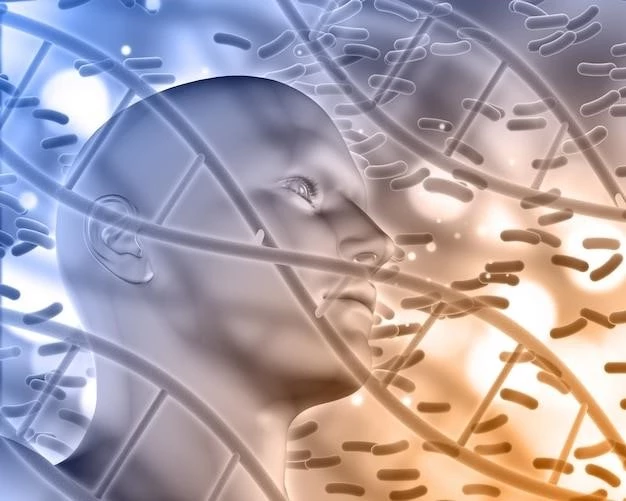Common symptoms include developmental delays, intellectual disability, distinctive facial features, and growth delays․
Recognizing the Clinical Manifestations
Individuals with Chromosome 7 Trisomy Mosaic may exhibit a range of symptoms٫ including developmental delays affecting motor skills and speech٫ intellectual disability٫ distinctive facial features such as a flattened nasal bridge and low-set ears٫ difficulties with growth and feeding٫ and in some cases٫ heart defects or seizures․ Diagnostic tests and genetic counseling are essential for proper management of the condition and to provide appropriate support and care․
Chromosome 7 Trisomy Mosaic typically occurs due to errors during cell division, leading to an extra copy of chromosome 7 in some cells․ This genetic abnormality can result in a variety of developmental challenges and physical characteristics․
Understanding the Genetic Basis
Chromosome 7 Trisomy Mosaic is caused by the presence of an extra copy of chromosome 7 in some cells, leading to an abnormal genetic makeup․ This condition arises from errors in cell division during early fetal development, resulting in an additional chromosome 7․ The presence of this extra genetic material can give rise to the characteristic features and health issues associated with the syndrome․ Understanding the underlying genetic alterations is crucial for accurate diagnosis, management, and genetic counseling for individuals affected by Chromosome 7 Trisomy Mosaic․
Diagnosis involves genetic testing to detect the presence of an extra chromosome 7 in a mosaic pattern, along with physical examinations and medical evaluations to assess symptoms and associated health issues․
Methods for Accurate Identification
Accurate diagnosis of Chromosome 7 Trisomy Mosaic involves genetic testing, such as karyotyping or chromosomal microarray analysis, to detect the presence of an extra copy of chromosome 7 in a mosaic pattern․ Additionally, clinical evaluations, including physical examinations, developmental assessments, and imaging studies, are conducted to assess the full spectrum of symptoms and associated health issues․ A multidisciplinary approach involving geneticists, pediatricians, and other specialists is crucial for a comprehensive and precise diagnosis of this genetic disorder․
Treatment focuses on addressing specific symptoms and associated health issues, including therapies for developmental delays, educational interventions, medical management of heart defects, and supportive care to enhance quality of life․

Strategies to Manage the Symptoms
Managing the symptoms of Chromosome 7 Trisomy Mosaic involves a multidisciplinary approach tailored to the individual’s needs․ Developmental therapies, educational support, speech and language interventions, physical and occupational therapies, and behavioral therapies can help enhance skills and improve quality of life․ Regular medical monitoring, early intervention programs, and addressing associated health issues play a crucial role in managing the condition effectively․ Collaborating with healthcare providers, therapists, educators, and support networks is key to developing a comprehensive treatment plan for individuals with Chromosome 7 Trisomy Mosaic․
The prognosis of Chromosome 7 Trisomy Mosaic varies based on the severity of symptoms and associated health issues٫ with early interventions and comprehensive care playing a crucial role in improving quality of life․
Evaluating the Long-Term Outlook
Assessing the long-term outlook for individuals with Chromosome 7 Trisomy Mosaic involves considering the impact of developmental delays, intellectual disability, and associated health concerns on daily functioning and quality of life․ While the prognosis can vary depending on the individual’s specific symptoms and the support they receive, early interventions, multidisciplinary care, and ongoing monitoring can help optimize outcomes and enhance overall well-being; Continued research and advancements in treatment approaches contribute to improving the long-term outlook for individuals affected by this genetic condition․
Ongoing research aims to deepen our understanding of Chromosome 7 Trisomy Mosaic٫ leading to improved diagnostic methods and innovative therapeutic strategies․
Advancements in Understanding and Treatment
Current research on Chromosome 7 Trisomy Mosaic focuses on expanding knowledge of the genetic mechanisms underlying the condition, exploring potential targeted therapies to address specific symptoms, and improving supportive care strategies․ Advances in genetic technologies and molecular diagnostics have facilitated earlier and more accurate diagnosis, enabling personalized treatment plans․ Collaborative efforts among researchers, healthcare professionals, and advocacy groups aim to enhance the overall management and outcomes for individuals with Chromosome 7 Trisomy Mosaic․ Continued research endeavors hold promise for further advancements in understanding and treating this complex genetic disorder․
Support groups provide valuable assistance, information, and a sense of community for individuals and families affected by Chromosome 7 Trisomy Mosaic․
Connecting with Community Resources
Support groups play a crucial role in providing emotional support, sharing experiences, and offering resources for families navigating the challenges of Chromosome 7 Trisomy Mosaic․ These groups connect individuals with peers facing similar circumstances, facilitate information exchange, and can help in accessing specialized services and educational opportunities․ By fostering a supportive network, support groups contribute to a sense of belonging and empowerment, enhancing the overall well-being of both individuals with Chromosome 7 Trisomy Mosaic and their caregivers․
Chromosome 7 Trisomy Mosaic in children requires tailored care plans, early interventions, and support systems to address developmental needs effectively․
Special Considerations for Pediatric Cases
Chromosome 7 Trisomy Mosaic presents unique challenges in pediatric cases, requiring specialized care plans that address developmental delays, intellectual disabilities, and potential health issues in children․ Early interventions, such as speech and occupational therapies, educational support, and medical management, play a crucial role in optimizing outcomes for pediatric patients․ Collaborative efforts among healthcare providers, educators, and families are essential in ensuring comprehensive care tailored to the specific needs of children with Chromosome 7 Trisomy Mosaic․ By focusing on early detection and tailored interventions, it is possible to improve the quality of life and long-term prospects for affected children․
